The Road to Victoria Island, the latest book by Suraj Oyewale (better known on social media as Jarus), will no doubt hold the average reader spellbound. Starting from the title, which tests the IQ (Intelligence Quotient) of the average reader, the compendium of 213 pages gives practical guides on how to achieve success in the corporate world and beyond.
In this interview with TheCable, Jarus shares parts the secrets of his success. He acknowledges that the ideas shared in the book, which covers the entire career chain from preparation to retirement, are localised, but he says they can be replicated anywhere in the world.
A first class graduate of economics and an award-winning chartered accountant, the author bares his mind on topical issues in this interview.
Congratulations on the success of publishing this new book, how did you arrive at the title?
Advertisement
Interestingly, when I started writing the book, that was not the title I was contemplating. Along the line, I wanted to be more creative. I didn’t want to use something straightforward, such as “How to get and retain job in Nigeria”, “How to achieve a rewarding career in Nigeria”, “The Road to Career Success”, etc. I wanted something more captivating, more creative. I decided to use Victoria Island as a metaphor for the 9-5 career in Nigeria.
In Corporate America, Wall Street usually serves that purpose. Wall Street is regarded as corporate capital of America, just as Silicon Valley is the start-up capital of the world. When you hear Victoria Island, the first thing that should come to your mind is career, being where a good number of top companies in Nigeria have their headquarters. In fact, it’s like you have not yet arrived as a company in Nigeria if you don’t have an office in VI. So I decided to use VI as a metaphor for 9-5 career in Nigeria.
Unfortunately, many Nigerians still find it difficult to figure that out. My distribution team has had to address questions like, “Why doesn’t the book contain map of Victoria Island? Is it not a guide to the roads in Victoria Island?” One man even asked one of my guys, “Hey, I’m coming from VI, I know the way to VI”, before even checking the book. That is the tragedy of our society. People read things literally. Not even the long subtitle of the book, “A guide to climbing career ladder in corporate Nigeria”, made some people decode that Victoria Island was only used metaphorically in the short title.
Advertisement
There are so many books out there, what stands The Road to Victoria Island out?
I have read a number on books on careers in Nigeria and frankly, I have never come across a book that treats that subject the way I did. You only get that level of details in books focusing on Corporate America. The book is replete with examples and case studies every Ade, Ada and Adamu can relate with. The examples used here are not from GE or Apple or Microsoft, but from local organisations – the Globacoms, the Oandos, the KPMGs of this country. That’s what stands the book out. I narrated my experiences to buttress a lot of points. I also narrated experiences of friends, junior and senior colleagues, etc. I spoke with a number of executives including CEO of Accenture Nigeria, and they narrated their career journeys, how they rose to where they are today. They are all contained in the book.
Can you share some of the challenges you encountered in the process of producing this publication?
The only major challenge I had was balancing quality with affordability. It’s a book which readership cuts across different cadres in the career chain – from students preparing for post-school career to the CEO already running a company. The price a senior executive can afford, a student or a corps member may be unable to pay. Yet, quality of production is driven by cost of production, which in turns drives pricing. If I produce a book for N2000 per copy, the price cannot be less than N4000 if I factor in marketing costs and all that. While a section of the readership (the working professionals) may not have a problem paying that for the book, the young graduate may not find it affordable. At the same time, I didn’t want to compromise the quality, even while wanting to make it affordable to the young readers too. As you may know, per unit production cost drops with volume, and I only wanted to print 500 copies for start, which is small, and means higher per unit cost. At the end of the day, we settled for a publisher that was able to strike balance somewhere. That is why we are able to arrive at a selling price of N2000 only, which covers the production cost, the marketing costs and a little margin.
Advertisement
A prospective reader may want to know how a compendium of 213 pages will address issues that affect different categories of people: students, graduates, unemployed, professionals.
The book has 11 chapters. The first chapter deals with how to excel in academics, sharing my experiences and those of friends that made stellar grades in Nigerian schools. I started with education because that’s one area many people neglect. The journey to career success actually starts from school. I later moved to job search, where I shared proven insights on how to ace the recruitment processes. I talked extensively on passing interviews. Then I moved to workplace issues, how to achieve career success in Nigeria, how to move up the career ladder, giving examples from successful professionals in Nigeria. I also discussed management styles of some Nigerian executives in the closing chapters. So it’s a chain. Young professionals will find in it how to climb career ladder in Nigeria, unemployed graduates will find in it how to surmount the recruitment challenges, senior professionals will read what other accomplished executives like Atedo Peterside of StanbicIBTC did differently. It serves everyone irrespective of where they are in the career chain.
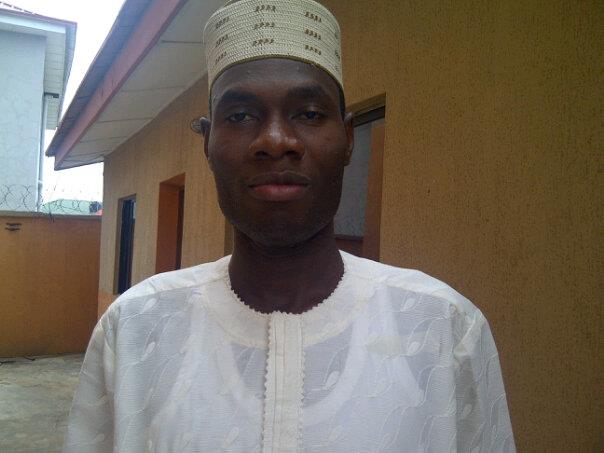 What’s your take on the belief that Africans do not read, I mean the saying, that if you want to hide something for a black man keep it inside a book?
What’s your take on the belief that Africans do not read, I mean the saying, that if you want to hide something for a black man keep it inside a book?
This may not be entirely correct any longer. Things are changing. The culture may not be deeply rooted yet but from what I observed, more and more people are taking to reading. As a personal example, I wasn’t one of the most voracious of readers years back, but I have improved greatly in the last couple of years. I now buy books, especially business books, and read. I see a lot of young Africans also picking up books.
Advertisement
Has it ever crossed your mind that the book could have more prospects if your target audience was in the west?
Well, yes and no. Yes, because people over there have a better reading culture, especially for business books like mine. The downside is, there are many books that discuss Corporate America, so my book will have more competitors were it to target a Western audience.
Advertisement
Social media has come to stay in the present society. Being a stakeholder, how do you feel?
I won’t say I’m one of the pioneers of social media in Nigeria. By 2005-2006, social media was already gaining momentum in Nigeria. But no doubt, I’m one of the earliest users. Nairaland, Nigeria’s biggest web discussion forum, was the earliest platform that appealed to me. I registered in 2007. I’m still an active member. I gained a reputation there for making contributions, especially on career, that other readers considered thoughtful. I cut my social media teeth on Nairaland and it was where I iced the cake of my passion for sharing beneficial career information, the genesis of this book.
Advertisement
And how would you assess the impact of social media on the society?
Social media has the upside and the downside, depending on what use you put it to. The Cynthia Osukogu murder case is still fresh in our memory. The young lady met some guys on Facebook and entered into some transactions that eventually led to her death in a FESTAC hotel. There was also the case of a young man who was impersonating a business magnate, which he used to lure some unsuspecting female job seekers to bed and blackmail them thereafter. These are atrocities that came with social media. There are also non-fatal downsides, like waste of productive times on Facebook and other social media platforms, the reason some companies banned the use of these social sites during work hours.
Advertisement
That said, I think social media is overall a positive development. Many entrepreneurs have been created from the popularization of social media in Nigeria. Some of us gained our modest popularity thanks to social media. Social media has also been used to advance positive political causes like the OccupyNigeria struggle of 2012. Many governments are now becoming sensitive due to fear of bad press that can be triggered on social media. Customer service is also taking new dimensions through its use of. I once contacted an airline (though not Nigerian) through twitter to inquire about change of flight and the response was very speedy. Connection to old friends is also now clicks away, thanks to social media. Social media has no doubt made life easy in a lot of ways.
Do you agree that Africa is yet to explore a tenth of the opportunities on the Internet?
I agree. I visit a number of blogs and websites that serve western, especially American, markets and the more I see, the more I agree that Internet opportunities are still far from optimised in Africa. The major issue in the past was trust; nobody wanted to do business with you unless they saw you physically. But the trust factor is gradually being surmounted. My team at JarusHub Career Portal writes/reviews CVs for people for a fee; most of these people they never saw physically. The transactions were consummated and executed on the Internet. The trust factor is no longer an issue.
JarusHub is rated Nigeria’s fastest-growing career portal and one of the nation’s most influential online platforms, how do you feel about this?
I’m humbled by the rating. It’s a product of quality, of content we publish and the calibre of people that associate with it, especially company executives. I floated JarusHub in March last year and by October, just seven months after floating, we were nominated as one of the Top 5 career portals in Nigeria. We were also nominated as one of the Top 10 Blogs in Nigeria in 2013. What I have learnt is that when you’re passionate about something, the sky is your limit.
Despite the contributions of career mentors like you, the rate of unemployment in the country is very alarming? What solutions do you see?
Earlier today, a friend, Dr. Emmanuel Okeleji, co-founder of Insidify.com, was telling me that the problem in Nigeria is not unemployment, but unemployability. I agree with him to an extent. The problem is not only lack of jobs, but also lack of quality people to fill the openings. At JarusHub, we focus on employability, that is, making people fit for jobs. I however agree that being a consuming country, lack of jobs is not an issue that can be pushed aside as well. But equally importantly, Nigerian graduates need to make themselves employable as well by developing themselves.
You are a very busy person, how do you combine your schedules in a way that they do not affect you?
I learnt how to multi-task from my university days. In the university, I was the president, secretary or active member of at least five associations or volunteer groups. I was also taking tutorials. And of course, I had my lectures to attend and school notes to read. Yet, I was able to do well on all fronts. I finished with a very good grade and the students I taught tutorials are still thankful to me till today. Now, I have a 9-5 job as an accountant in an oil and gas company, I run a portal that focuses on career and mentorship, I am active on the social media, I belong to a couple of groups, I just wrote a book, etc. I think my multiple engagements in the university prepared me for these.
5 comments

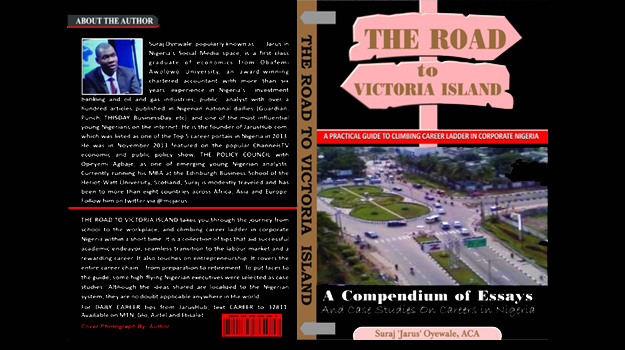



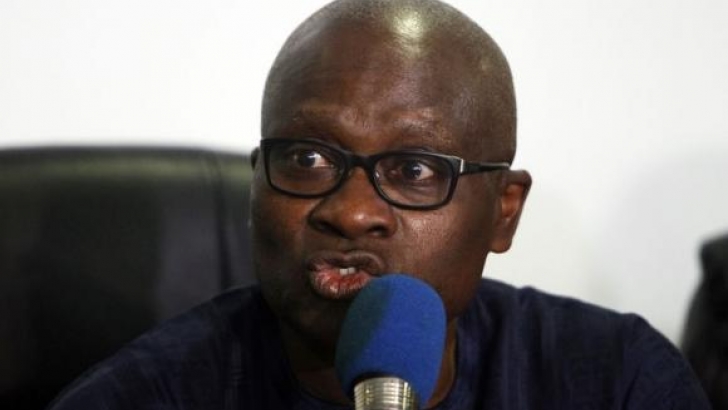
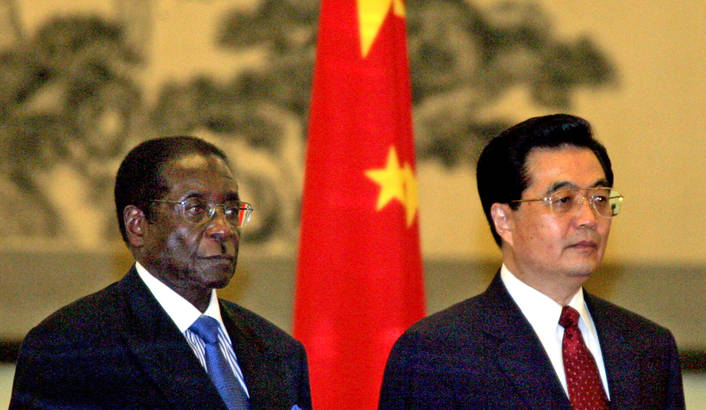
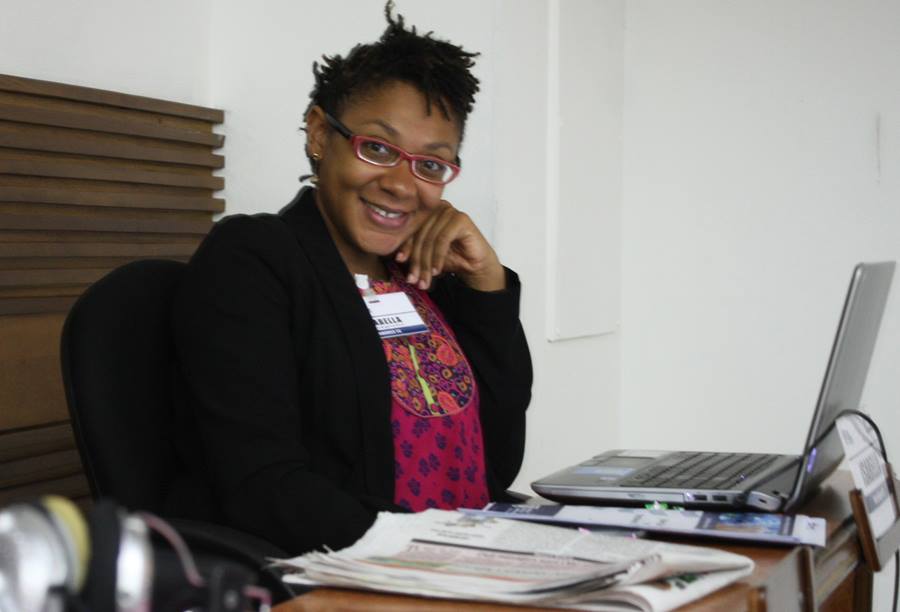
Jarus….how do we get it in northeast….gombe specifically,i am tired of reading how white people turn millionaire over night.we african’s got gift we needed to developed by imitating person from us…. Suraj…..kudos to u. May this knowledge be a source of respect,honour and benefit to you in this world and hereafter..
You can get by sending email to [email protected]
We are very excited to be working with him. He is a very hard working man! Kudos!
Good one. Wasn’t expecting anything less.
We have been following you on social media surely think you’re cool. We would also love to get the book in copies for our audience and to reach out to individuals who would need it.
Keep it up! The world is watching.